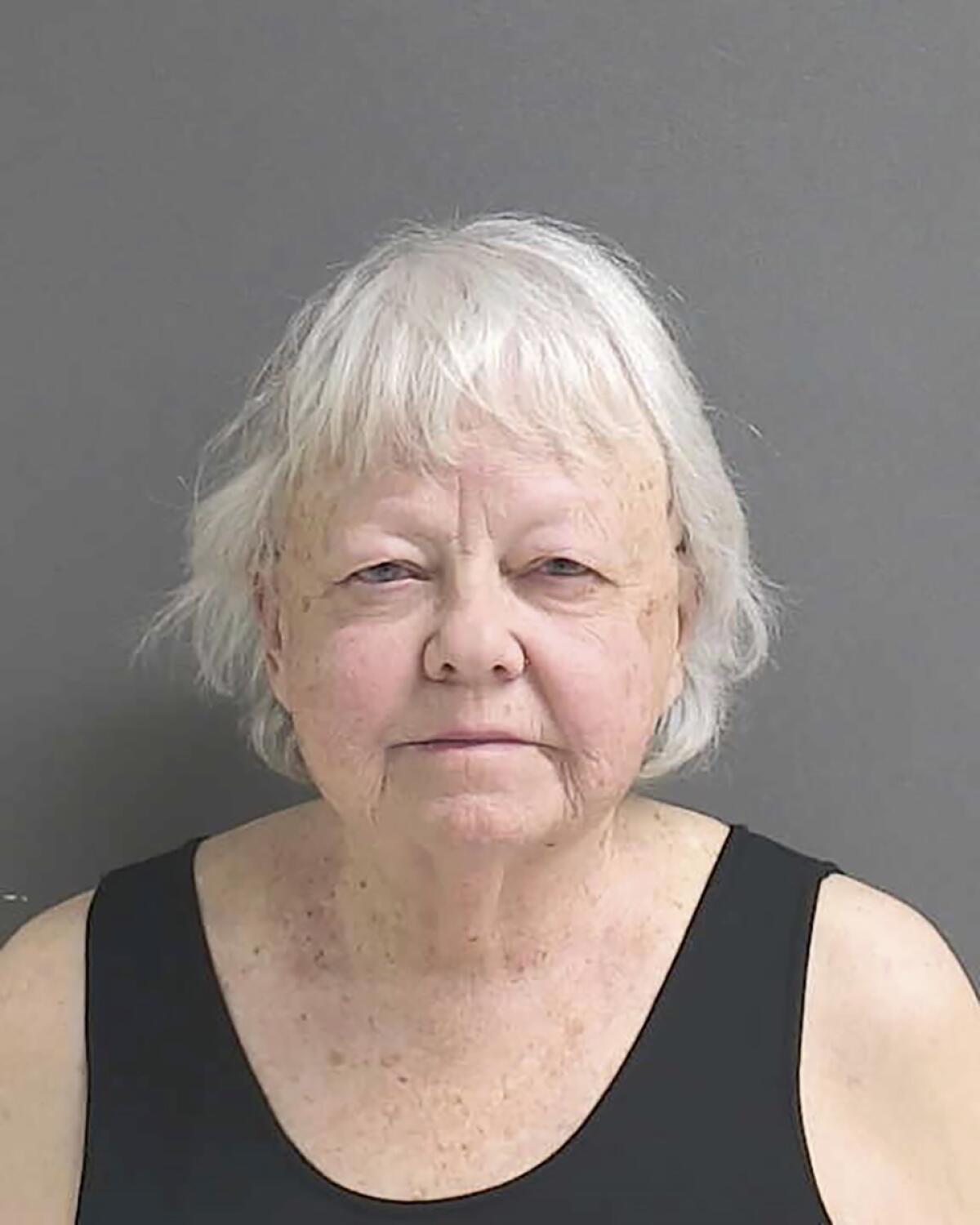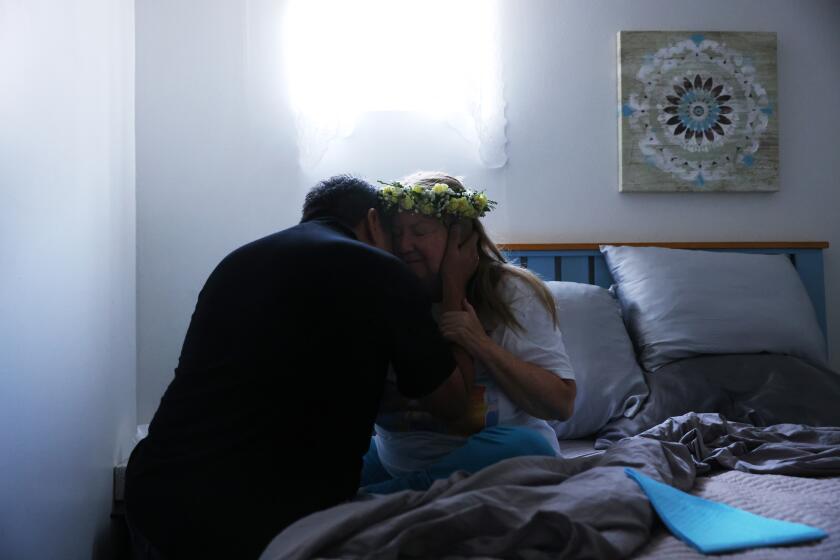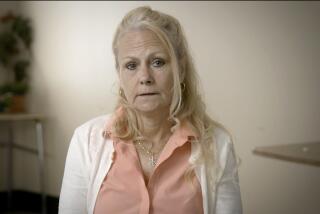Column: A wife killed her husband, police say. Here’s why she shouldn’t be charged with first-degree murder

- Share via
What’s the point of charging Ellen Gilland with first-degree murder?
Yes, she killed her husband: She walked into his 11th-floor hospital room in Daytona Beach, Fla., last Saturday morning, pulled out a gun and shot him dead, police said.
But she did so at his own request.
According to Chief Jakari Young of the Daytona Beach Police Department, there was an agreement made between 76-year-old Gilland and her 77-year-old husband, Jerry, about three weeks earlier. He was terminally ill and they agreed that if his condition worsened, he wanted to die. Originally the plan was that he would kill himself with the gun, but when the time came, he didn’t have the strength.
Opinion Columnist
Nicholas Goldberg
Nicholas Goldberg served 11 years as editor of the editorial page and is a former editor of the Op-Ed page and Sunday Opinion section.
“So she had to carry it out for him,” said Young at a news conference. “It’s a tragic circumstance because it just shows that none of us are immune from the trials and tribulations of life.”
In the early plan, she was going to kill herself too, Young said. But she didn’t follow through.
To be sure, it was a bad scene at the hospital. There was a standoff. She wouldn’t let the police into the room or drop the gun for several hours. Other patients had to be evacuated from the ward. Police no doubt feared for their lives, although the chief said that Gilland stayed in the room and that hospital staff and other patients were not threatened. But before she was arrested her gun discharged again and a bullet shot toward the ceiling.
I’m not suggesting that any of this was acceptable behavior.
But it is exactly the kind of thing that happens in a society where suffering or dying people can’t legally end their own lives when they decide it’s time. Florida doesn’t have a death with dignity law that permits physician-assisted suicide for people with less than six months to live, as California does.
In California, Jerry Gilland probably could have gotten the certification of two doctors that he had only half a year left and he could have been allowed to end his life at home with medication — without the mess, the drama or the murder charges.
Long before she got her terminal cancer diagnosis, Gabriella Walsh had considered the situation as a hypothetical: If her time was limited, she didn’t want to prolong her life. Her priority was the quality of the days that remained.
Instead, his wife is in jail, charged with first-degree murder and aggravated assault with a deadly weapon, according to the Daytona Beach News-Journal.
Assuming it’s true that she killed him in accordance with his own final wishes, I hope she won’t ultimately be tried for anything as serious as murder in the first degree.
But if she is, it wouldn’t be the first time. In 1985, a retired Fort Lauderdale engineer named Roswell Gilbert shot his wife twice in the head to end years of her suffering from pain and Alzheimer’s disease. He was convicted of first-degree murder and sentenced to 25 years without parole — a sentence that shocked many supporters who felt he had “acted out of love,” as the News-Journal put it.
Gilbert served five years and was granted clemency in 1990 at age 81. After his conviction he said: “I don’t feel like I committed a crime at all. Justice is on my side but the law is on somebody else’s.” Later he expressed some repentance.
Even as attitudes toward assisted suicide and euthanasia seem to be loosening, Canada’s liberal laws are causing bioethicists concern.
In some subsequent cases, defendants in similar circumstances in Florida have been allowed to plead to lesser charges. Here’s hoping that Ellen Gilland will be treated with some compassion.
This is not the first time I’ve written on aid-in-dying, as it’s sometimes called. I support extending California’s “End of Life Options Act” beyond terminally ill people with only six months to live to include Alzheimer’s and dementia patients and people living with chronic pain, if they choose it. I believe our law should be less restrictive than it is because, for some people, life has become so miserable or difficult that ending it is a reasonable and responsible choice.
And states like Florida should approve such laws as well.
But lest it seem as if I am all for people giving up when the going gets tough, let me also write briefly about the opposite: someone who rose to the challenge of a crisis, surmounted it and went on living.
That’s Jonathan Raban, the British writer known for his travel books and essays. Raban died last week at age 80 of complications from a stroke he suffered in 2011.
The stroke left him able to use only one of his hands. But that didn’t stop him from using voice dictation software to write his autobiography, which he completed and which is scheduled to be published in September.
His editor told the New York Times, “It is one of the most miraculous feats of writing I’ve ever witnessed.”
Good for him for fighting on. Some people can overcome extraordinary setbacks and continue to pull satisfaction from life. Others cannot.
More to Read
A cure for the common opinion
Get thought-provoking perspectives with our weekly newsletter.
You may occasionally receive promotional content from the Los Angeles Times.














